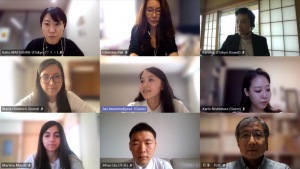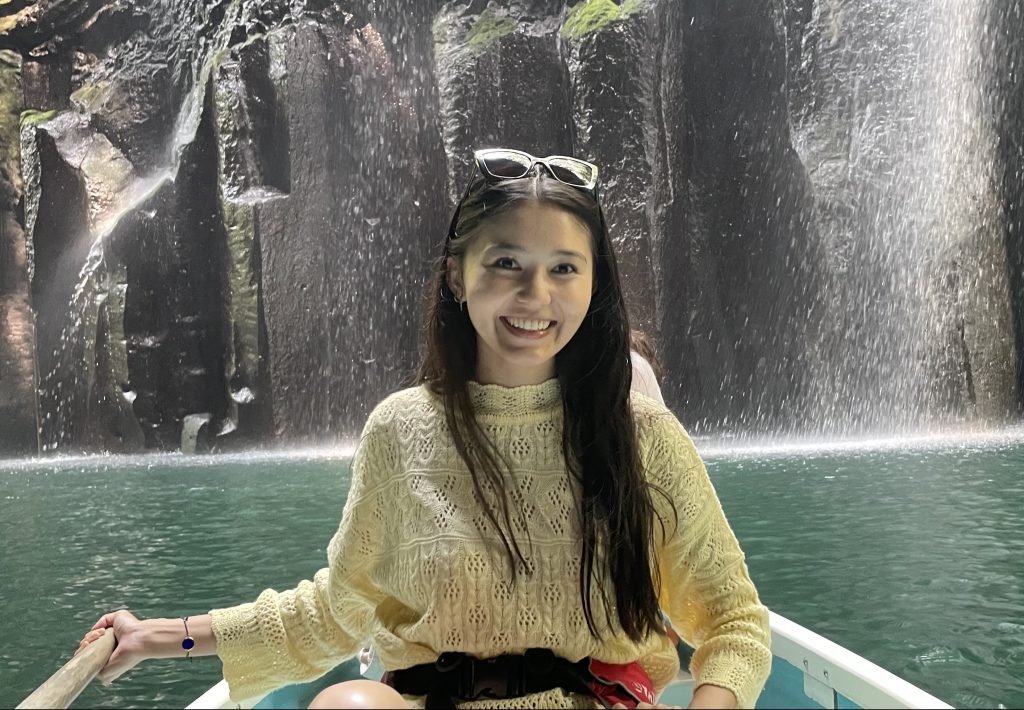After joining GraSPP in September of 2020, I was immediately exposed to its variety of practical training courses. Having completed my BA in International Relations, I’ve only had experience learning from theoretical approaches. Coming to GraSPP was a decision that provided me with a completely different approach to learning. I benefited from courses that emphasize individual students’ professionalism and creativity. One of such courses gave me an opportunity to lead and moderate a session with officials from the Asian Development Bank (ADB) based on the topic of my interest.
International Field Workshop (IFW) is a practical course that offers students networking opportunities with various institutions across different sectors. Through such networking sessions, students are given a unique chance to discuss their ideas directly with practitioners from the field they are interested in. Most importantly, students are encouraged to plan, organise and moderate these sessions independently, with the support of the professor and peers. This was the most appealing part to me. Learning first-hand from practitioners about the complex and topical issues and simultaneously challenging yourself to lead the discussions is an effective approach (in my opinion) to discipline yourself and learn to ask the right questions actively.
 Last year’s topic was based on sustainable development in the era of COVID-19. Under this theme, I was interested in ADB’s project that aimed to mitigate the growing gender-based violence by addressing the gaps in judiciary systems. After successfully securing a positive reaction from our counterpart in charge of this project – Ms. Christina Pak – Principal Counsel at the Office of the General Counsel of the ADB, preparations for the session began. Despite having no experience in leading and moderating a discussion with an official before, I was able to feel more confident thanks to the immense support in the form of feedback and encouragement from my classmates during the preparatory meetings.
Last year’s topic was based on sustainable development in the era of COVID-19. Under this theme, I was interested in ADB’s project that aimed to mitigate the growing gender-based violence by addressing the gaps in judiciary systems. After successfully securing a positive reaction from our counterpart in charge of this project – Ms. Christina Pak – Principal Counsel at the Office of the General Counsel of the ADB, preparations for the session began. Despite having no experience in leading and moderating a discussion with an official before, I was able to feel more confident thanks to the immense support in the form of feedback and encouragement from my classmates during the preparatory meetings.
On the actual day, the session with Christina seemed to go by very quickly. The questions raised were addressed with precise and honest answers, and a great deal of shared expertise affected me with its fresh outlook on the long-existing issues of gender violence. We had discussed the taken-for-granted practical points of the traditional judiciary systems that, in fact, pose obstacles to the survivors of gender-based violence. Thanks to this session, I was able to polish my understanding of these systemic gaps and of the work that ADB does to provide support to its members. Not only had I gained new information but also, talking directly to Christina allowed me and my peers to receive immediate answers to our questions. Even after the conclusion of IFW, I had the opportunity to work with Christina and ADB’s Gender Support Team to publish my blogpost on their knowledge-sharing platforms.
This experience inspires me to engage in discussions about gender-based violence, especially in countries with weak judiciary systems. In this regard, the IFW platform became an important node, further involving me in some of the discussions and works done by ADB. The most recent was the “Asia-Pacific Conference on the Promotion of Gender-Responsive Judicial Systems,” for which I had a chance to serve as a co-facilitator in one of the sessions. This experience allowed me to bring the smallest contribution to such a crucial and vast topic. It also connected me with people working in the field of my interest and has expanded my network beyond ADB’s Gender Support Team.
To reflect back, through these IFW sessions with practitioners with years of expertise in their field and further exposure to their professional environment, I learned the importance of the right attitude and language in setting the right tone for various discussions. Language is crucial, and it needs immense consideration towards the sensitivity of certain complex social issues. While aware of these points, I believe in having strengthened my leadership and organisational skills, which will be a great asset in future professional endeavours. Although the IFW was held online due to the COVID-19 constraints, the overall atmosphere was full of lively discussions. IFW provided me with a platform to challenge my limits, benefit from peer-to-peer feedback, and enjoy my studenthood. I would like to express my gratitude to all the members of IFW 2020, who had helped me in perfecting this session, and to Professor Nishizawa for enabling me to discover a bit of professionalism in myself.
Related article



